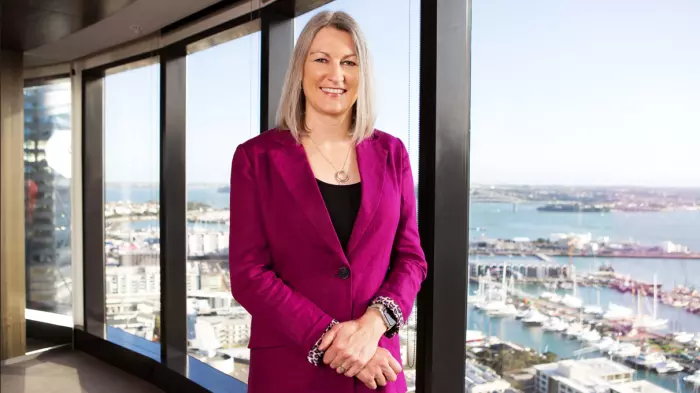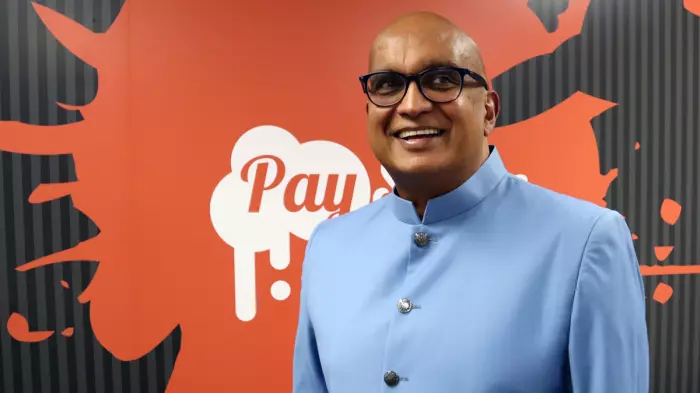BusinessDesk investments editor Frances Cook responds to emails from readers each week to answer questions about money. Below, you will find her expert advice. Send your own questions to [email protected].
Hello,
With inflation, why do they go straight to interest rates to stop consumers' spending?
Why don’t they do an advertising campaign asking us to stop spending or they will put rates up again? Or at least tell consumers how they can help stop inflation, like the covid campaign?
M
Hi M,
Yeah, the interest rates situation is a bit of a bummer right now. Let’s start with what the Reserve Bank of New Zealand (RBNZ) is trying to achieve, and then ask why they don’t try other tactics.
You’re right that they’re trying to stop consumers' spending. Credit cards become more expensive so you’re less likely to ring up a bill at the shop, and mortgages become more expensive so you have less money in your budget to spend.
But they’re also trying to cool down the economy by sucking money out of other places, too. Businesses will find it more difficult to get a loan, and many of them depend on credit to fuel their plans.
So, when interest rates go up, businesses also become more cautious. They might pause plans to expand into new areas, or stop approving as many pay rises, or not hire new people.
Inflation is when there's more demand than can be met through supply, so prices go up. When they hit both individuals and businesses in the back pocket, these groups don't spend as much, giving supply a chance to catch up.
The idea is that we all calm down a bit, and inflation reduces.
Why not just ask nicely?
I love your faith in humanity – unfortunately, I don’t have quite as much of it.
You mention the covid response, and I think that’s a really good example.
At first, people did comply. They stayed home, put bears in the windows and, as we learned that masks helped, people put them on.
But then it all got a little annoying, and people got sick of it. As time went on, people found reasons why they could nip over to a relative’s house during the lockdown, ‘just to quickly check in’.
Or they didn’t want to wear a mask to the supermarket and would yell at minimum-wage staff tasked with enforcing it.
People can often make a change in the short term but then the novelty wears off, and it doesn’t stick long-term.
There’s also the possibility that we get a version of an advertising campaign request to stop spending as much. It happens when the Reserve Bank boffins do their press conferences.
They’ll often stand at the podium and grimly predict that more interest rate hikes are coming, that the economy is in trouble, and that they’re ready to give us another dose of bitter medicine in order to stave off the worst of it.
That message then gets relayed on TV and in news articles.
The result? Many people or businesses stop spending and start saving their cash ahead of time, preparing for what the Reserve Bank says they’re going to do.
In a way, when the Reserve Bank says things like this, they’re sabre-rattling and they know it.
They want to talk down the economy, and it can work. Then they hike interest rates in the future if they think it hasn’t done enough.
The expert view
I asked Brad Olsen, principal economist at Infometrics, for his thoughts on this. He had some very great insights for us:
“An interesting question – if only it was that simple (although it is a useful exercise to consider).
“Essentially, the reason why the Reserve Bank and others don’t start with an advertising campaign and go straight for direct action is a combination of the underlying problem with the “tragedy of the commons” and the need to have wide public action without the ability to opt-in or out.
“Humans are self-interested, and so although there might be some who heed the advice to spend less, if not everyone heeds the advice, the action still fails.
"It then requires the direct support to occur anyway, but by that time, there’s already been a delay. It’d be the same as if the government at the start of covid-19 asked people to please stay home for a bit, but didn’t enforce it.
"How many people would have actually listened and stayed inside, with the risk that people didn’t listen to the advice, thought they’d be strong enough to handle covid-19 and left the entire population in a worse place?
“With spending, everyone would try and make a justification for why they were still spending.
"Some might say they are young and still establishing themselves, and those who had already lived a few more years should rein in their spending. Middle-income earners might think that higher-income earners should do more, and leave it to them.
"I’d find it unlikely that people would just naturally decrease spending if they saw an ad campaign.
"They’d ask questions like, “By how much?”, “Is this targeted at me, or someone else”, and so on. They’d also ask “What do I spend less on?”. "Rising interest rates let households make their own, individual decisions on how to spend (operating within their budget constraints).
“Realistically, rising interest rates are a clear and observable signal to people in their everyday lives that they should spend less because they now have less to spend.
"There is, in essence, already a de facto campaign going on at the moment.
"I’m speaking to audiences up and down the country most days about how NZ is trying to do too much with too little, and that we need to bring the temperature of the economy down a bit. That same message is relayed in media (including BusinessDesk) and by other commentators, the Reserve Bank and the government.
"Importantly, the conversation (and de facto advertising campaign) is also going for why people should reduce their spending, otherwise interest rates will have to rise higher to pull against the economy.
“In short, asking people to pull back is a worthy idea, but unlikely to get the wide buy-in needed, at scale, to see the change that is needed.
"Raising interest rates presents a clear and actionable signal to households over how to adjust their spending. It’s not glamorous, but its simplicity is effective."
So, there you have it. Basically, because it really needs to work, and people aren't reliable at doing things just because we need them to.
Send questions to [email protected] if you want to be featured in the column. Emails should be about 200 words, and we won't publish your name. Unfortunately, Frances is not able to respond to every email received, or offer individual financial advice.
Information in this column is general in nature, and should not be taken as individual financial advice. Frances Cook and BusinessDesk are not responsible for any loss a reader may suffer.















